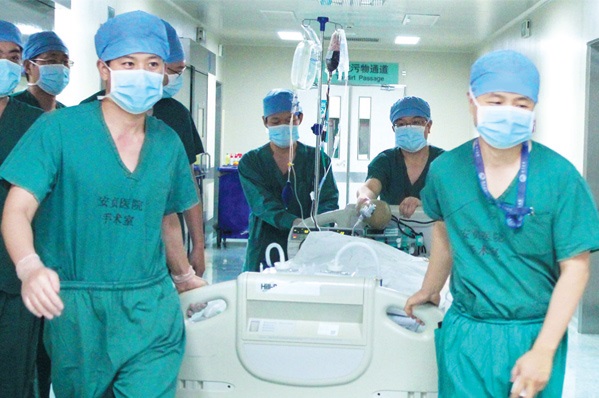
Under Beijing's reform plan, services depending on the training and abilities of medical practioners will cost more, incentivizing staff to focus on improving the quality of the services they provide. (Photo/Feng Yongbin)
Medical service fee
Another major change brought about by the reform plan is the cancellation of the registration fee and consulting fee, which will be replaced by a single medical service fee instead.
It embodies the intelligence and labor value of doctors, nurses and other medical personnel, creating a boost to the provision of better medical services, said Fang.
Third-level hospitals-the highest-level public hospitals in China-for example, will charge a medical service fee for outpatient services offered by its general practitioners of 50 yuan ($7.26) per instance, for associate chief physicians 60 yuan, for chief physicians 80 yuan, for renowned experts 100 yuan. The registration and consulting fees combined were less than 20 yuan.
For those patients who need emergency treatment, they should pay 70 yuan per instance, and the medical service fee for an inpatient will be 100 yuan per bed per day.
"Most of the doctors in our hospital are optimistic about the medical reform, we are expecting higher income in the following days," said a doctor from Beijing's Chaoyang Hospital, who asked to remain anonymous. The hospital is one of the third-level public hospitals in Beijing.
To ease the burden of the public for the medical service fee, the Beijing Human Resources and Social Security Bureau renewed its medical insurance policies, making the medical service fee reimbursable in the basic medical insurance systems for urban employees as well as urban and rural residents.


















































